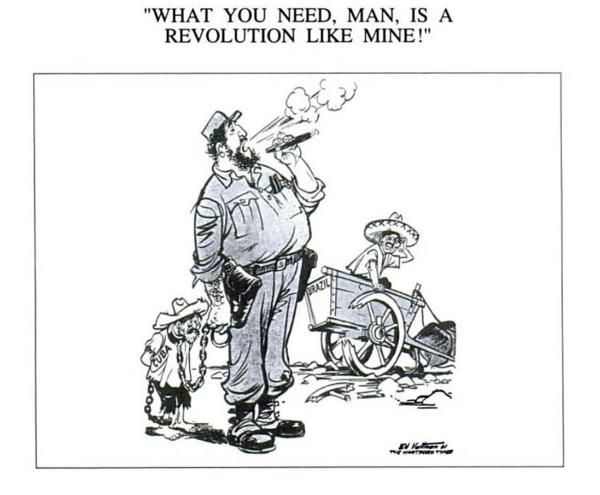I thought it would be an interesting look into our nation's political cartoon history if, this month, I took a look at a different editorial cartoon each day that won the Pulitzer Prize for Editorial Cartooning. Do note that we're talking basically 1922-1967 here, as since then, the Committee has awarded cartoonists generally for their work, not for an exemplary single cartoon. So in many ways, this is a snapshot of American politics (for better or for worse) over a forty-five year period.
We begin with Edmund Valtman, who won the 1962 award.
Enjoy!
Edmund Valtman (1914-2005) was one of many political cartoonists who spent the 1950s and the 1960s examining problems with Communism, but Valtman was one of the few cartoonists who experienced the effects of Communism (well, the Soviet Union, at least) personally, as Valtman grew up in Estonia and worked as a cartoonist there for many years. When the USSR invaded the nation in 1944, Valtman and his family left the country and spent a number of years in a displaced persons camp in Germany.
After moving to the United States in 1949, Valtman soon took up work as the cartoonist for the Hartford Times, where he worked until his retirement in 1975.
In 1962, he won the Pulitzer Prize for Editorial Cartooning for the following cartoon, titled "What You Need, Man, Is a Revolution Like Mine!"
On August 25, 1961, the President of Brazil, Janio Quadros, resigned. This was actually a bit of strategy designed to solidify his own control of the country, as he felt the country would turn down his resignation out of the fear of seeing his Vice-President (Brazil allowed Presidents and Vice-Presidents to be elected from different parties), Joao Goulart, take office.
His plan backfired, and Goulart eventually took over as President, but not before a ten-day gap where people were unsure what was going to happen with Brazil.
There were certainly more than a few people out there who would have liked to have seen Brazil follow the ways of Cuba, who had only recently been taken over by Fidel Castro.
In the cartoon, which appeared on August 31st, right in the middle of the ten-day period of uncertainty, Castro is appealing to the people of Brazil to follow his ways, while next to Castro is the suffering people of Cuba. Valtman is telling Brazil that such a path would be foolish, as at the time, Cuba was suffering under shortages of food and other goods.
Goulart, by the way, eventually was removed from office via a military coup in 1964. Goulart died in 1976, and just last year, there were confirmations from former intelligence workers that Goulart's fatal heart attack was, in reality, assassination via poisoning.

